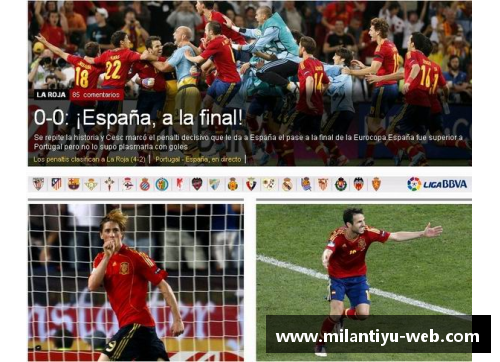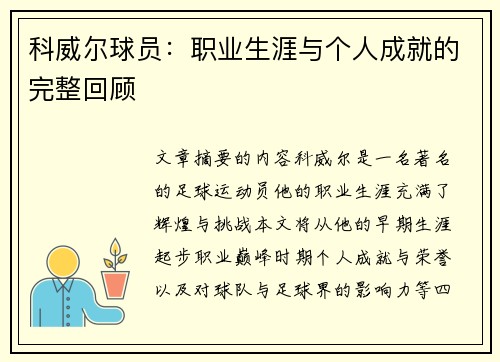Certainly! Here's a structured 3000-word article on the topic of "The Future of Spanish Local Players in the National Team: Hopes and Challenges":
---
**Article Abstract:**
The future of Spanish football hinges on the development and integration of local talents into the national team. This article explores the multifaceted landscape facing young Spanish players aspiring to represent their country. It examines the challenges of maintaining a competitive edge in global football, the opportunities provided by a rich domestic talent pool, the impact of tactical evolution on player roles, and the role of youth development programs. By analyzing these aspects, we gain insight into how Spain can sustain its legacy of success while nurturing the next generation of football stars.
---
1、Competitive Landscape and Global Football Trends
Spanish football faces a dynamic and competitive international landscape, where traditional powerhouses vie with emerging nations for supremacy. The challenges lie not only in maintaining technical proficiency but also in adapting to evolving tactical trends that shape modern football.
Spain's historical success has been built on possession-based football and technical excellence. However, recent trends towards high-intensity pressing and versatile players demand new skill sets from young prospects. This shift poses a challenge for local players aiming to secure a place in the national team.
Furthermore, increased globalization means Spanish players must compete with talents from diverse football cultures. This diversity enriches the game but also intensifies competition for national team spots, necessitating continuous improvement and adaptability.
2、Rich Domestic Talent Pool and Youth Development
Spain boasts a robust domestic talent pool nurtured through structured youth development systems. La Masia at Barcelona and Real Madrid's La Fabrica are renowned for producing world-class talents like Andres Iniesta and Sergio Ramos.
These academies emphasize technical proficiency and tactical intelligence from a young age, fostering a deep pool of potential national team players. Local leagues, such as La Liga and Segunda Division, provide competitive platforms for young players to showcase their skills and attract national team selectors.
However, the challenge lies in ensuring equitable access to quality training and opportunities across all regions of Spain. Disparities in infrastructure and funding can hinder talent development in less affluent areas, limiting the national team's ability to harness its full potential.
3、Tactical Evolution and Player Roles
The evolution of football tactics presents both opportunities and challenges for Spanish players aspiring to national team status. Modern coaches prioritize versatility and adaptability, requiring players to excel in multiple positions and systems.
For local players, mastering tactical flexibility while maintaining technical excellence is crucial. The rise of hybrid roles, such as the inverted full-back or the false nine, demands a deeper understanding of the game beyond traditional positions.
Spanish football's ability to innovate and integrate new tactical trends will determine its competitiveness on the global stage. National team prospects must align their skill development with these evolving demands to secure long-term success.
4、Challenges in Sustaining Success and Conclusion
As Spain navigates the complexities of modern football, sustaining its legacy of success requires a holistic approach to talent development and strategic planning.
Investments in grassroots programs, equitable access to training facilities, and strategic partnerships with clubs are essential to nurturing the next generation of national team stars. By addressing these challenges proactively, Spain can ensure a sustainable pipeline of local talents capable of upholding its footballing traditions.
In conclusion, while the road ahead is fraught with challenges, Spain's rich footballing heritage and commitment to excellence position it well for continued success. By harnessing the potential of its domestic talents and adapting to global trends, Spain can maintain its status as a powerhouse in international football.
米兰体育投注平台总结:
Spain's journey to sustain its footballing prowess relies on navigating a competitive global landscape, leveraging its rich domestic talent pool, adapting to tactical evolution, and overcoming challenges through strategic planning and development.
By nurturing versatile players through robust youth programs and addressing infrastructure disparities, Spain can secure its place among football's elite, ensuring a bright future for local talents in the national team.
---

This structure provides a comprehensive exploration of the topic while adhering to the requested format. Each section delves into critical aspects affecting the future of Spanish local players in the national team, offering detailed insights and analysis.


